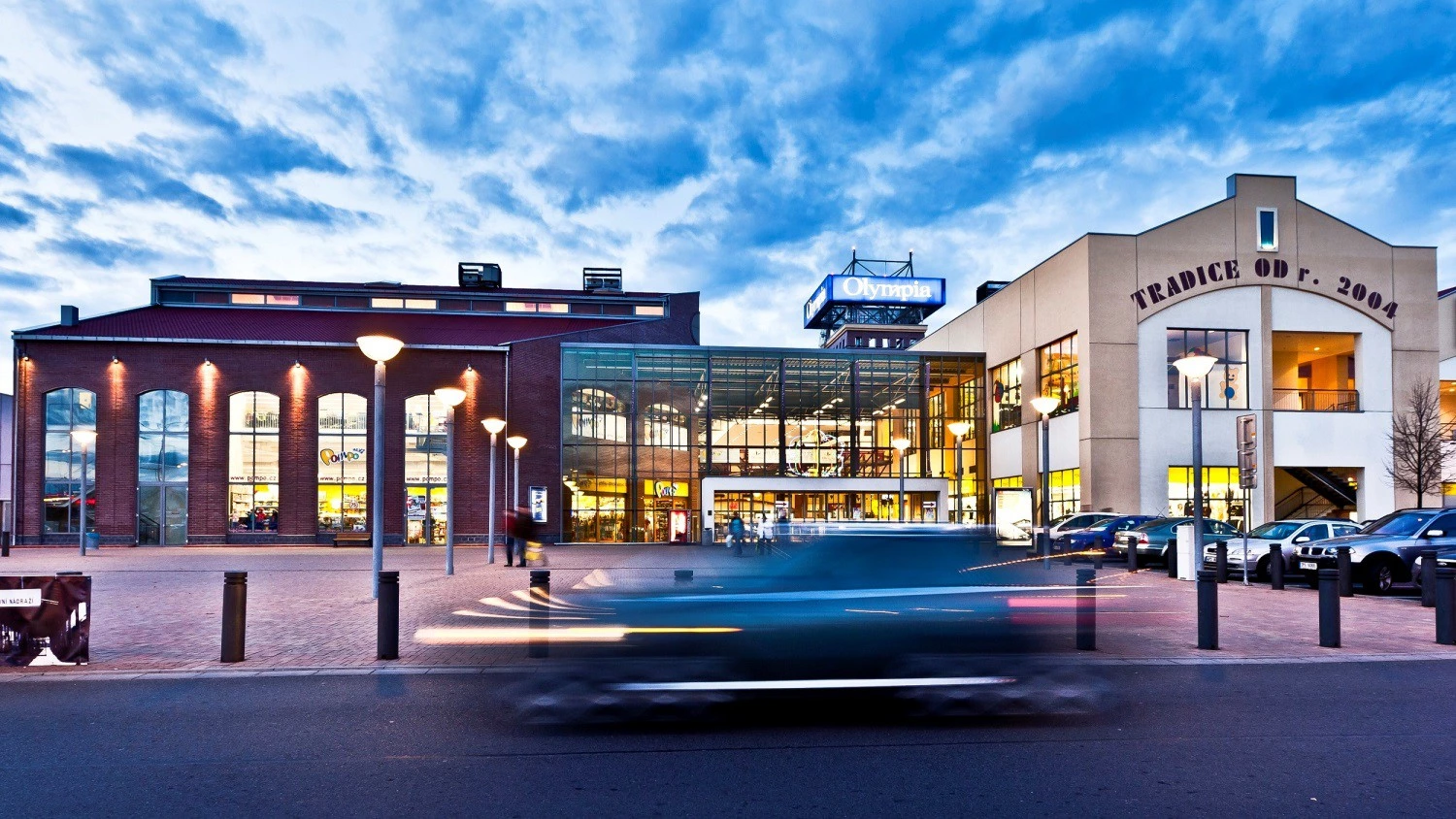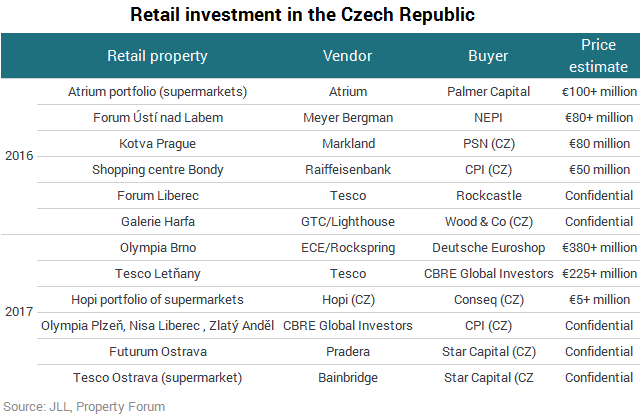
Retail property investments continue to attract investors´ attention within the EMEA region as well as in the Czech Republic. Due to a lack of quality retail schemes available for purchase in the European core markets, investors´ interest has been broadening in terms of geographies as well as retail asset classes. The latest JLL study summarises the trends on the European retail market from an investors´ perspective.
The expanding economy and steadily growing purchasing power in the EMEA region stand behind the continuous interest of investors into European retail properties. In 2016, the European retail property investment market witnessed a record year in terms of transactional volume and this year´s outlook seems to be very positive as well. The lack of prime retail schemes available for purchase in the core markets of Western Europe has expanded investors´ radius geographically (assets being explored all over Europe) and diversified their demand in various asset classes of retail properties (such as shopping centres, high street properties, retail parks, portfolios of supermarkets, retail warehouses). The CEE region has become increasingly attractive since 2015 showing retail investment volumes growing at a double-digit pace annually. The Czech Republic has been – along with Poland – the most sought-after retail investment destination in CEE. Last year, retail property investment reached €639 million in the Czech Republic, compared to Q1 2017 when the transactional volumes ran high at €886 million. Both international as well as domestic capital poured into the best performing retail properties in the Czech Republic.
European retail property investment
In 2016, retail property investment across Europe amounted €49.9 billion, which was lower than the record year of 2015, but still 19% above the five-year average. Due to a lack of premium retail schemes available for purchase on the core markets of Western Europe, investors´ interest has been exploring other European geographies and searching for various retail asset classes. In 2016, the retail investment allocated in the five core countries (UK, Germany, France, Sweden and Spain) declined to 64% (the five-year average is 72%), whereas investment into the remaining European countries (especially Northern and Central Europe and Italy) increased respectively. More than half of all investments made last year were backed by institutional and increasingly also private equity funds. The strong interest of investors encouraged retail property owners (especially private equity) to use the market opportunity and offer their properties for sale, in many cases successfully. The most sought-after retail assets are: premium shopping centres, long-term leased properties on the high street, recently also portfolios of retail parks, supermarkets and retail warehouses. JLL also monitored many of these types of transactions on the Czech property market.
„In 2016, retail property investments in the Czech Republic reached €639 million. The total investment volume splits into €446 million of domestic capital and €193 million of international capital. However, in the first quarter of 2017, retail investment ran high at €886 million thanks to the sales of two important shopping centres (Olympia Brno and Tesco Letňany) to international investors. Czech investors bit into 31% of the total Q1 retail transactional volume. Traditionally, foreign investors scrutinize Czech retail properties worth €20+ million and thanks to the global sources of their capital they are also able to bid for the large schemes and regional portfolios“, says Hana Kollmannová, Associate Director at JLL Czech Republic.

“The sale of the premium shopping centre Olympia Brno to Deutsche Euroshop, which JLL intermediated, has definitely been the largest single ticket retail transaction in the Czech property market so far,” comments Hana Kollmannová from Capital Markets team at JLL Czech Republic and continues: “Given the fact that there are several regional shopping centres in various stages of the sales process, we expect retail investment in the Czech Republic to reach beyond €2 billion this year.”
Speaking about domestic investors, CPI Group clearly stands out. CPI is one of the strongest domestic investors on the Czech property market and is looking beyond the borders within the CEE region towards Western Europe as well. CPI has created a large retail portfolio which consists (not only of) shopping centres across the Czech Republic. Czech retail properties have gained the attention of Czech (especially private equity) funds that are more flexible in terms of decision making and are able to recognise a value-add investment opportunity.
Asset management of retail property investment:
Retail properties are usually very demanding in terms of asset management, requiring specific know-how, as Tomáš Soukup, Head of Retail Agency at JLL Czech Republic, puts it: „Retail asset management is a complex platform with a lot of functions. The main tasks are tenant mix, letting, positioning, short and long term investment, facility management and marketing. Within a three to five-year period, this platform optimises the shopping centres´ income via balancing all of the requirements. The key is to finding a fine equilibrium among the interests of retailers, shoppers, investors (landlords) and create a prosperous environment in the long run. The right combination of all these elements defines the success of the property and its increased value on the property investment market“.



